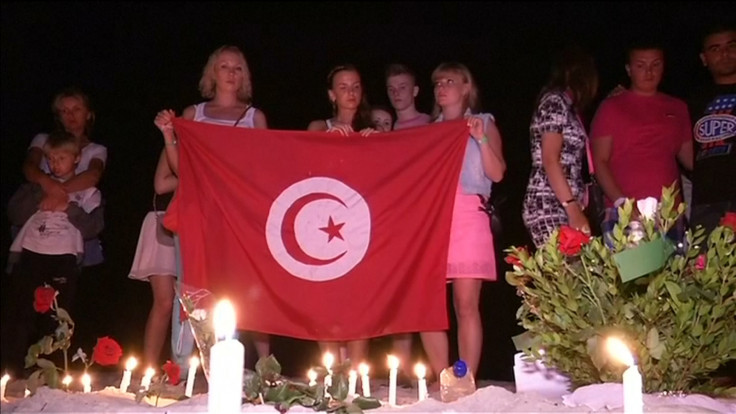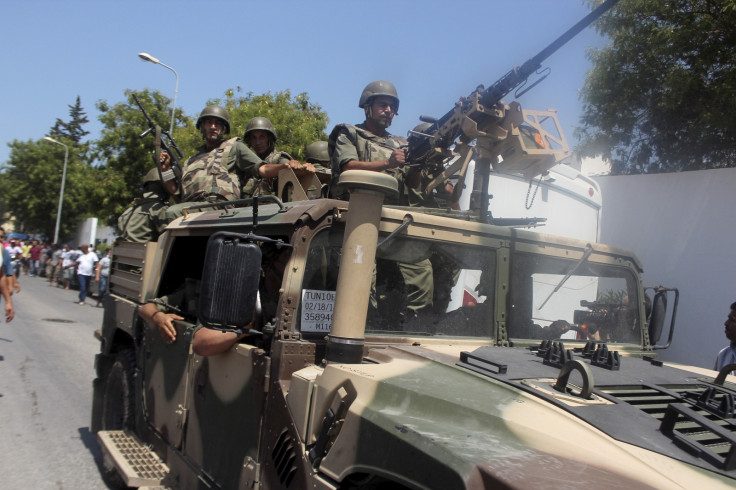Tunisia beach attack: Terrorism and poverty prove country's Arab Spring success story is just a myth

Less than four months after the Bardo Museum massacre claimed 21 victims, mainly cruise ship passengers, a new terrorist horror has shaken Tunisia and, once again, tourists were the targets.
This time the attack was at a seaside resort hotel in Sousse, 140 km from the capital Tunis. At least 38 tourists were killed and another 36 injured while they lay on their sunbeds.
Although this new attack has shocked Tunisians and people across the world, it is not a great surprise since terrorists have always understood the high-profile impact of attacking tourist resorts in countries whose economies depend on the foreign currency of visitors.
Although foreigners are the immediate victims of any attack, the real target is the state.
We must not forget that jihadists include young people that come from well-educated, middle class or rich families.
Tunisia has always been considered the success story of the Arab Spring; the one country that succeeded in drafting a new constitution and organising fair elections after the ousting of dictator Zine El Abidine Ben Ali on January 14<sup>th, 2011. It was regarded as the only country that managed to come out of the Arab Spring relatively unscathed.
Since then, however, Tunisia is now seen as the world's single biggest exporter of jihadi extremists to Syria and Iraq. It has also been reeling from terrorist attacks on its security forces in remote areas since 2012. Only recently has this focus shifted to the country's major cities.
There are several factors which, when taken together, may help explain why the country is now regarded as one of the region's more unstable nations.
Tunisia's disaffected youth
Some of Tunisia's youth, disillusioned by thwarted high expectations of the Arab Spring, have become radicalised. Young Tunisians longed for a real change in living conditions after rising up against the dictatorship in 2011 but the governments that followed Ben Ali failed to provide it.
When they took to the streets during the uprising, young Tunisians demanded employment, freedom and dignity, but were let down by the politicians who failed to show a willingness to fulfil those goals. High youth unemployment will always fuel the jihadi cause.
Although education is relatively inexpensive in Tunisia, jobs remain scarce. Again, young people with nothing to look forward to than poverty and bad social conditions are often attracted to extremism.
As hope drains away, young people become vulnerable and easily manipulated and are often attracted to the promise of money and a way out from jihadi recruiters.
An exception -- but not the only recruit to come from the country's well-educated, middle class or rich families -- is rapper Emino. Maurouane Douiri, better known by his stage name Emino, used to be more at home singing about drugs and sex before he travelled to Syria to join ISIS.
At the time his radicalisation was linked to a spell in jail for smoking cannabis where, angry and bitter, he was brainwashed by other prisoners to join the jihadist movement.
Political shortcomings
Ironically, the government's more liberal attitude to extremist views since the Arab Spring has also been blamed for helping to radicalise young people in the country. Newly-acquired freedom of expression offered radicals the opportunity to spread their retrograde, extremist and radical ideologies -- ideas that would have been choked under the pre-revolution dictatorship.

The Ennahdha government that came to power after the elections in 2011 failed to manage security problems or stamp out extremist groups. It was under that government that the rate of young Tunisians fighting in Syria and Iraq began to become significant.
The country has also witnessed a decline of the police apparatus which, it is claimed, has itself been infiltrated by radicals. Hundreds of mosques were out of control where extremists could pursue their own agenda. Sermons were turned into hate speeches and calls for jihad.
Many of Ennahdha Islamist party leaders insisted that Salafists -- fundamentalists who believe in a return to the original ways of Islam -- should be included in the political process. Many of those involved in terrorist acts under the regime of Ben Ali were granted amnesty. Later on, and despite its promises to fight terrorism, the freshly elected party Nidaa Tounes (Tunisia's call) failed in its objective.
Significant challenges
Nevertheless the fight against terrorism should not lead the country to a new dictatorship based on repression.
Finally, let's not forget the country's geography also plays a part in the story. The situation in neighbouring Libya is challenging for Tunisia. After the liquidation of Gaddafi there were stories of massive arms dumps in places on the border between the two countries. Many Libyan terrorist groups have become the refuge for disillusioned Tunisian young people. Added to that is the international context: terrorism has become a global problem.
Today, Tunisia faces significant challenges, and fighting terrorism is only one of its priorities. Improving security alone will not solve Tunisia's problems. It is just part of a bigger solution that must be combined with improvements in social matters, economic issues, education and culture.
Tunisia needs more investment, a crackdown on its black market and economic reform including the eradication of corruption. The Tunisian government needs to assume its responsibility and admit to its failure in finding solutions to fight terrorism -- especially after the promises made following the Bardo museum attacks in March.
Tough security measures are needed and they must be applied on the ground not just issued as promises. International assistance is another option.
Above all, the fight against terrorism should not be allowed to drag the country towards a new repressive dictatorship.
Lina Ben Mhenni is a writer and activist based in Tunisia
© Copyright IBTimes 2025. All rights reserved.






















